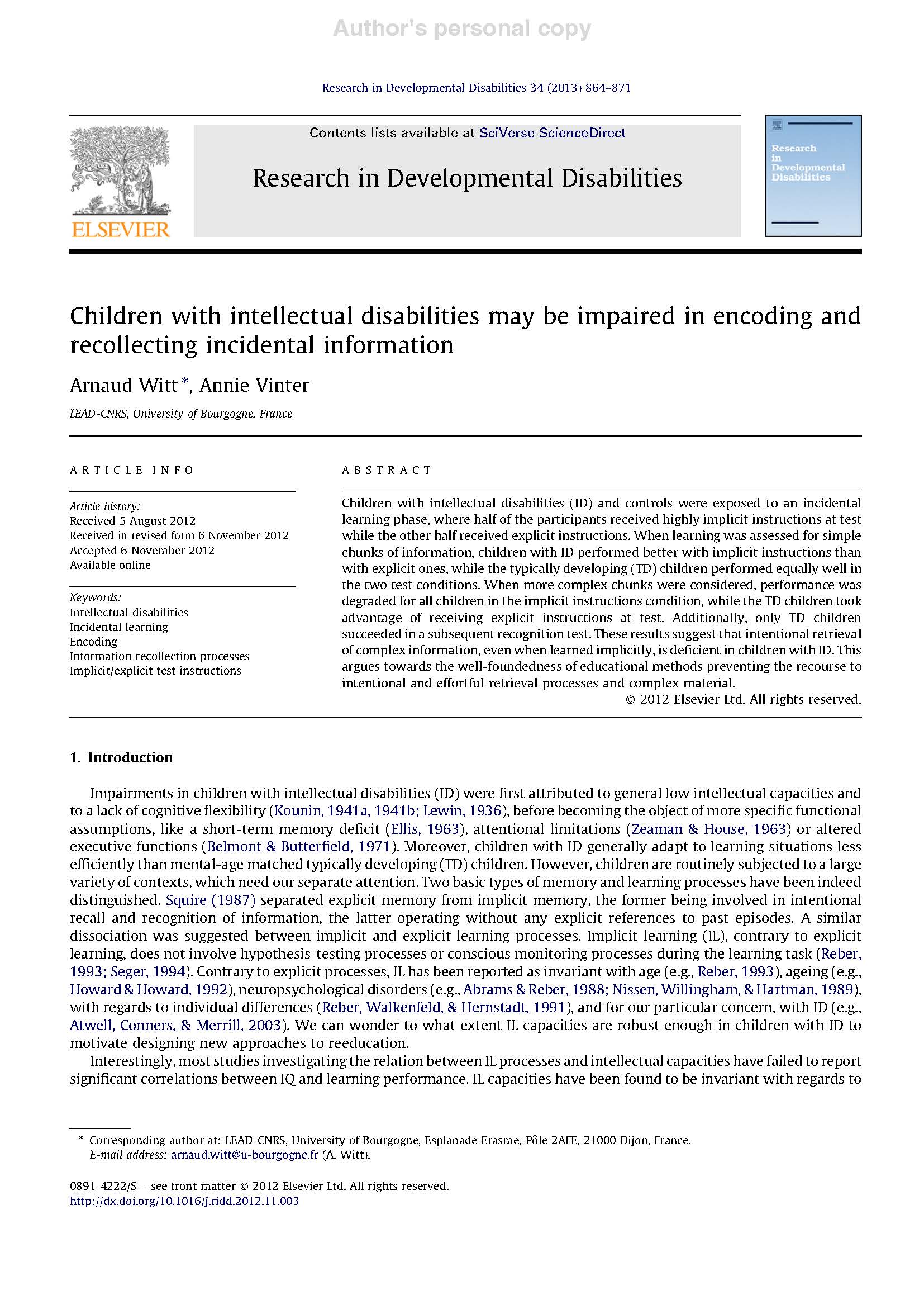Children with intellectual disabilities (ID) and controls were exposed to an incidental learning phase, where half of the participants received highly implicit instructions at test while the other half received explicit instructions. When learning was assessed for simple chunks of information, children with ID performed better with implicit instructions than with explicit ones, while the typically developing (TD) children performed equally well in the two test conditions. When more complex chunks were considered, performance was degraded for all children in the implicit instructions condition, while the TD children took advantage of receiving explicit instructions at test. Additionally, only TD children succeeded in a subsequent recognition test. These results suggest that intentional retrieval of complex information, even when learned implicitly, is deficient in children with ID. This argues towards the well-foundedness of educational methods preventing the recourse to intentional and effortful retrieval processes and complex material.
Children with intellectual disabilities may be impaired in encoding and recollecting incidental information
